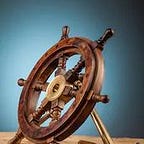1. Redundancy:
Safety
On a sailing ship, especially on any ship, it is strongly recommended that at least one redundant system be installed for safety reasons so that it does not become stranded when the primary system fails. For longer cruises, it is sometimes recommended that you have at least two backup systems: a total of three systems. I recently read about a situation in which a person dropped his cell phone charger overboard and a storm hit the VHF antenna. They could still communicate with a specially equipped emergency cell phone. Often, when one of the systems fails, it can affect other systems. Not having a bilge pump running could eventually cause your boat to sink or absorb so much water that other systems fail. However, a bucket is a perfectly good example of a redundant backup system in case the bilge pump fails. The assembly of the marine electrical panel complements the addition of redundant power supply to charge batteries and critical and non-critical power systems.
2. Supplement The Alternator:
Fuel costs
Instead of running your motors without stopping, you can use marine electrical panels to power different systems on board. This also saves fuel and allows you to travel farther for the same fuel cost. Marine solar panels can keep your battery charged even if you are hundreds of miles from a power source. Panels can be paid for alone over time. Without an inverter, it can generate power for 12 volt DC devices, such as security lights, regular lighting, pumps, fans and small appliances, such as coffee makers. If you add an inverter, you can power larger 120 volt AC appliances, such as radios, satellites, and microwaves.
3. Maintenance Charging:
Readiness
Analogous to cars batteries are too susceptible to loss of charge. If You are not driving too often then you start the engine every now and then to keep the batteries working. With a regulator (to prevent overcharging), marine electrical panels can keep your batteries fully ready. Whenever you are ready to go sailing or go for a cruise, your battery will be fully charged. There is nothing worse than looking forward to an outing on a beautiful only to get to your boat to find out the battery is dead.
Key differences to consider when using electrical panels for marine use:
Essentially, marine electrical panels have the same applications that regular panels have, but they have the additional benefit of providing a critical axillary unlimited power source in an unforgiving environment where power is otherwise completely limited to only what you can carry. There are not any solar panels that are specifically for marine use, although some are advertised as good for RV and Marine applications. These panels are advertised as such because they are extremely rugged and usually made out of polymers that are resistant to the corrosive salt water environment.
You should ensure that all hardware and wiring is up to marine standards. A common mistake that you need to avoid is the use of regular copper wire for wiring purpose. They are prone to oxidation and corrosion. It degrades the conductivity of the metal making it vulnerable to failure. Tinned wire of marine grid is best suited. It not only improves conductivity but also prevents corrosion. Stay away from wiring, which features solid core or single strand. Vibrations make the wire prone to breakage that may cause undesirable disruption of electric supply.
As long as the system is properly managed, the marine electrical panel should be able to satisfy most of the needs of the navigator and the admiral.
